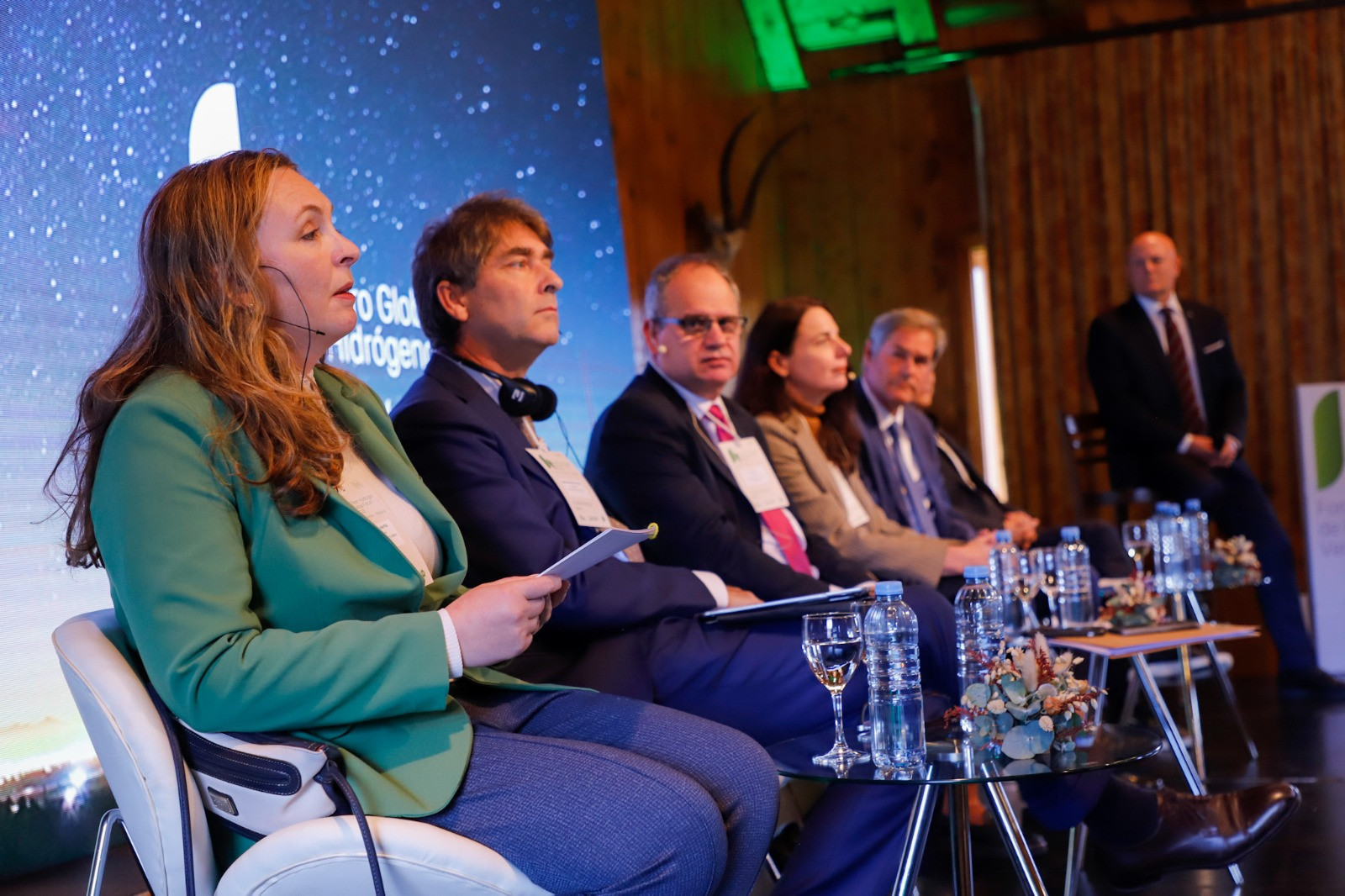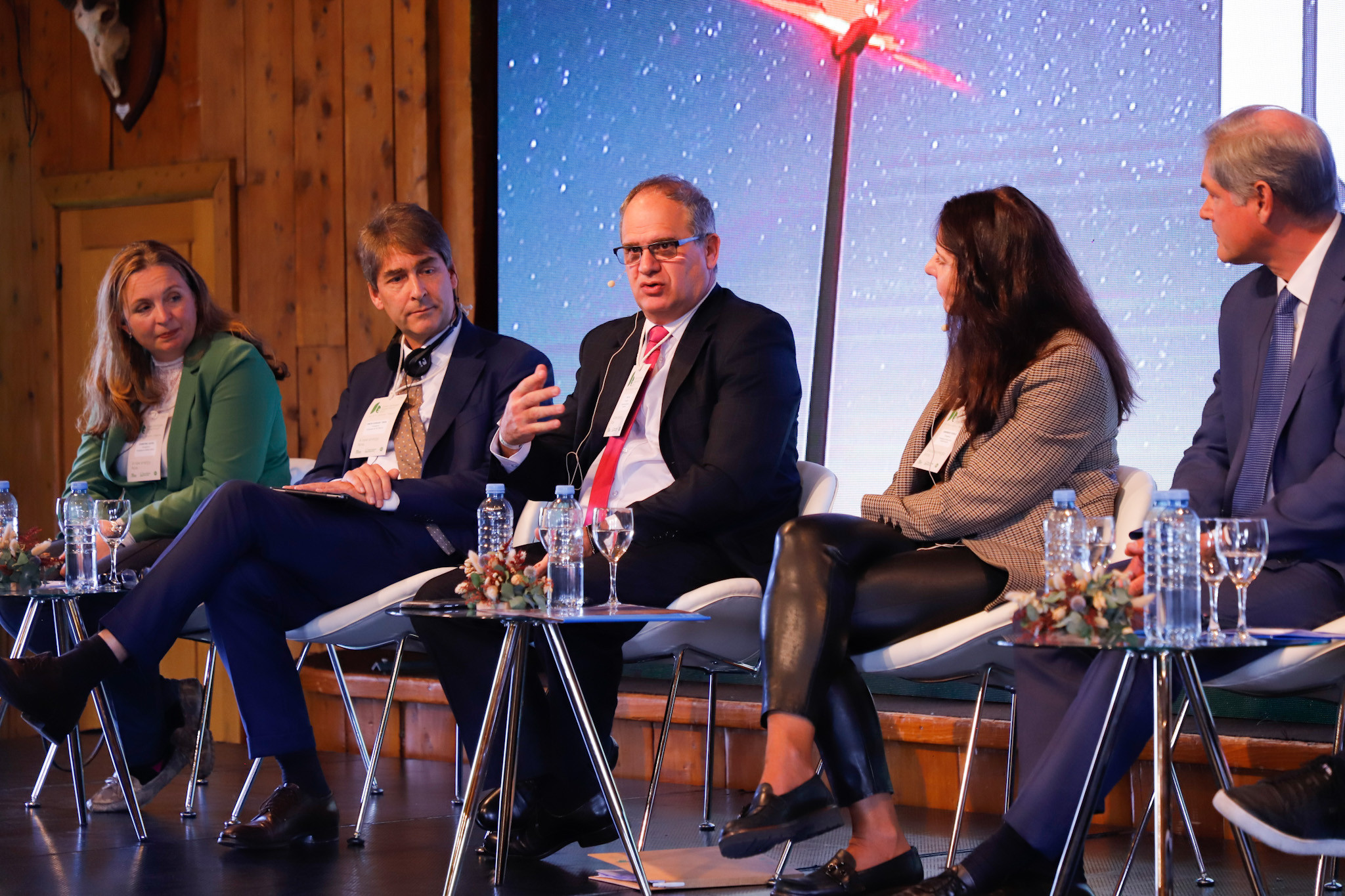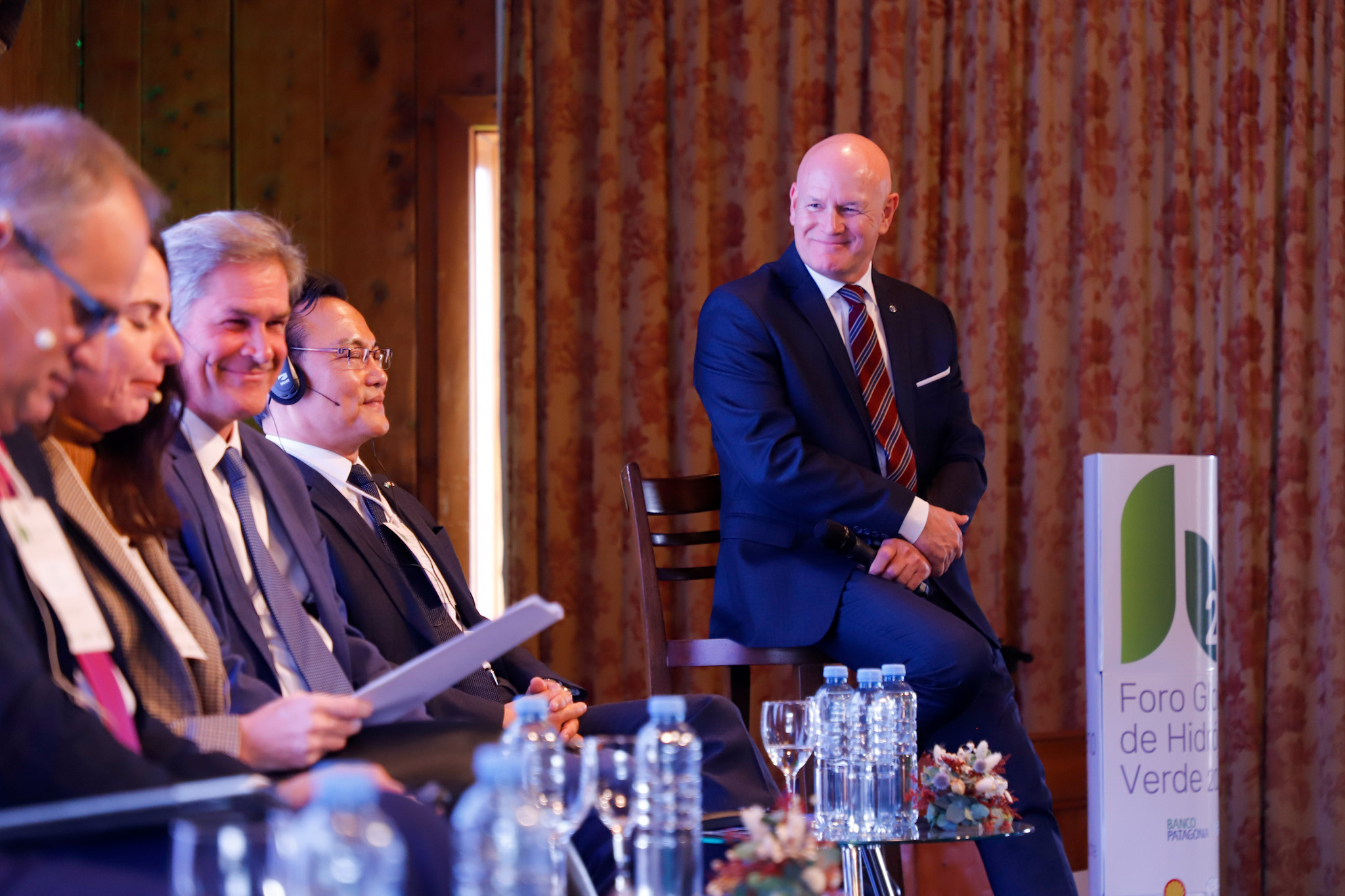Green Hydrogen
Green Hydrogen Forum: ambassadors highlight Argentina's potentials
In the framework of the Global Green Hydrogen Forum, the Secretary of State for Planning, Daniel Sanguinetti, moderated the panel in which issues related to the international trade of green hydrogen were analyzed: where it will be produced and where it will be used.
Fecha: 18 de mayo de 2023
The topic was addressed by the ambassadors of the United Kingdom, Christine Hayes; of Australia, Simon Edward Twisk; of the Netherlands, Annemieke Verrijp; of Israel, Eyal Sela, and of the Republic of Korea, Yongsoo LEE, and by the Minister of the German Embassy in Argentina, Peter Neven.
In a crowded auditorium, the official thanked the audience for being part of the forum's agenda and for their willingness to tour the local scientific and technological ecosystem.
"On behalf of the Government of Río Negro, I would like to thank you for coming here, knowing that in Patagonia there is a high level scientific and technological system, and political decision makers very interested in joining these initiatives in order to leave a better legacy and future for the new generations", he said.

Christine Hayes, Ambassador of the United Kingdom (UK), explained the strategy on low carbon hydrogen, and its essential incidence to achieve energy independence and increase energy power. She said the element will be a crucial part of the UK's future energy system and will not only allow a move away from expensive hydrocarbons but also towards green energy to be used for power generation, transport and potentially home heating.
She also emphasized the imperative need to develop new forms of energy that are competitively available and good for the planet, and the importance of developing international value chains.
She described the UK's hydrogen strategy as "a systemic roadmap for comprehensive development for the wider industry, which will enable the Government to meet the 2030 target.
Hayes explained that the 52 hydrogen production projects that currently exist are in addition to plans to develop other renewable energy sources that also require joint work and cooperation with other countries in the region.
"Accelerating innovation and technology deployment is essential to encourage the boost effect on the production side and the attraction effect on the demand side," she said and called to join the initiatives that are already underway, "we have to move quickly, we must do it to us and to our mother earth," she concluded.
Then, Annemieke Verrijp assured that the objective of the Netherlands is to provide solutions for future generations and to this end, they are working on large investments to improve the port of Rotterdam.

She pointed out that radical changes have already begun in the region, but that they have been accelerated by the complex international situation and the energy supply due to the events in Ukraine.
She summarized the main projects currently under study and development, their uses and applications, and made special emphasis on the Energy Transition Plan and the firm objective of reversing the equation.
In addition, she referred to the hydrogen route in particular, and the national hydrogen strategy based on three fundamental axes: production and potential buyers, transportation and infrastructure, and storage.
She indicated that by 2025, they foresee having a diverse set of hydrogen exporting countries both within and outside Europe, and that they estimate that the region will require 20 million tons, of which Europe will only be able to produce fifty percent, while the remaining fifty percent will have to be imported.
Finally, she empathized the role of Latin America and the Caribbean and the potential to be at the forefront of supplying green hydrogen and derivatives to Europe.
"Argentina has a huge potential to play a leading role in the region, it has highly experienced industries, skilled human resources, unique natural resources and high-level infrastructure. The country has all the conditions to become a world leader, but for this to happen, clear policies are also required to determine the strategy and a plan to achieve great benefits for the country", she concluded.

During his presentation, the Ambassador of Australia, Simon Edward Twisk, welcomed the invitation and reviewed the work that the country is doing in pursuit of the energy transition with other countries. He also referred to the national hydrogen strategy and the projects underway.
Regulatory framework amendments, the development fund for projects and international cooperation were central themes of his presentation, and he dedicated a special paragraph to international competition and the global commitment to safeguarding the immediate future.

Eyal Sela detailed the Israeli developments GH2, where the characteristics of the territory play a fundamental role. Natural resources position the country as a suitable territory for the production of solar energy.
He also emphasized the country's interest in incorporating green and renewable energies, and pointed out that Israel can contribute to the development of green hydrogen in terms of research.
The German ambassador stressed that "the energy transition in Germany has already begun and there is no turning back;" he assured that the impulse of the Ukrainian war added a geostrategic decision to the environmental one itself.
He also referred to the ambitious goals for 2030, linked to lowering greenhouse gas emissions.
"It is very clear, gas and oil are a transit energy source; the future of the energy sector is green," he said.
"Germany is going to need large amounts of GH2 in the coming years, and we cannot produce it at home so we will have to import between 60 or 70 percent," he mentioned and continued: "we are working on import logistics and we are looking for new partnerships."
"From our point of view Argentina has to establish itself in the new global energy trading system; the conditions position them among the best in the world, but it is of crucial importance to have a legal framework. We are ready to cooperate with countries that want to develop GH2 structures," he concluded.
Finally, the Ambassador of the Republic of Korea, Yongsoo LEE, thanked for the invitation and talked about the Korean experience in the energy transition, focusing on the economic aspect.
He also highlighted the potential of Argentina and the opportunities for cooperation between the two countries.
Fourth panel
The topic of the fourth panel was “Legislation and Contracts for Green Hydrogen." Carla Perez, Head of News Radio and Television Rio Negro and host of Canal 10, moderated this pannel.
The speakers were Verónica Tito, legal advisor of the National Secretariat of Energy; Gonzalo Montiel, National Director of Strategic Productive Vectors and Ramiro Rodríguez, Senior Associate Consultant at Consultora Caldén.
